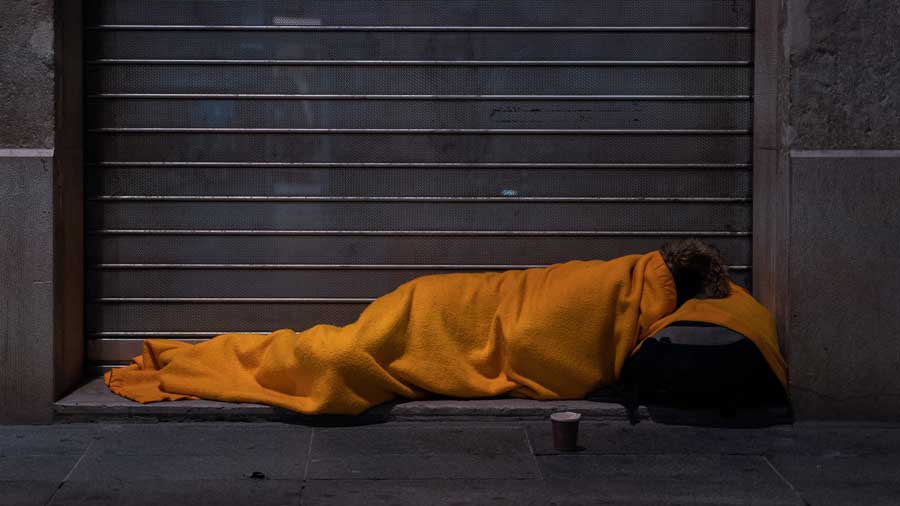Evolve's Alexandra House in Croydon supports 80 single homeless people with a range of support needs
More than bricks and mortar
Building more affordable homes won’t stop homelessness without additional support to address mental health problems and other complex issues

HEALTH, CARE & SUPPORT
Evolve's Alexandra House in Croydon supports 80 single homeless people with a range of support needs

Jack Ithell
Communications and Fundraising Manager, Evolve Housing

Jack Ithell
Communications and Fundraising Manager, Evolve Housing
Issue 73 | September 2024
When it comes to homelessness in London, the statistics make for sombre reading. Rough sleeping is at its highest level for 10 years and local authorities are spending millions on temporary accommodation to keep people off the streets. In fact, according to Combined Homelessness and Information Network research, the number of people sleeping rough in London from April 2023 to March 2024 was 29% higher than it was the year before.
Against this backdrop, calls have understandably been growing for the construction of new affordable homes. In fact, this is something that the new Labour government has looked at immediately, with Deputy Prime Minister Angela Rayner proposing a raft of measures to make it happen. However, although welcome, would this be enough to solve the problem of homelessness?
Sofia’s story
Take Sofia. She moved to the UK from Ukraine in 2022 after the Russian invasion began. She stayed with a sponsor family after arriving, but the stress of her experiences caused enormous strain. She was admitted to hospital for mental health support, and the relationship with her sponsor family broke down. She moved into hotels, before returning to hospital. It was after this that she came to one of our supported housing services in Kensington and Chelsea.
Sofia’s story demonstrates how complex homelessness can be. She did not face the prospect of becoming homeless just because there aren’t enough homes, but because she was struggling immensely with her mental health and wellbeing. Separated from her family and traumatised by what she had been through, she needed more than just a roof over her head – she needed a safe and supportive space that offered wider support like counselling and casework.
Of homeless people supported by Evolve Housing identify as having a mental health issue
“Many become homeless after bereavements or family breakdowns.”
Image: Istock
Complex issues
She is not alone. Many people who have been homeless identify as having a mental health issue – among those we support, it is around 80%. Some, like Sofia, have experienced recent trauma, and many others have experienced traumatic events at some point in their lives.
Many become homeless after bereavements or family breakdowns, and lots become estranged from their loved ones during that period. Some have not lived in their own place for many years and others, especially if they are young, have never done so.
In such cases, it is not enough to find someone affordable accommodation. We must also equip them to build the life that they want. If not, they may struggle to sustain the accommodation and become homeless again.
The importance of a network
If someone has a serious mental health issue, or is struggling with substance misuse, that will not stop just because they have a new place to live. If they have not worked for a long time, or do not know how to register for Universal Credit, they will not be able to pay their rent. If they have not spoken to family or friends for years, they will have no network to support them in their new surroundings.
Such issues must be addressed, and this can only be done via personalised support tailored to each person. That is why supported housing is so essential, where one-to-one casework can be carried out and services like counselling can be accessed. Floating support – where case workers visit people who have moved into new homes to offer assistance – can play this role as well.
The scale of the homelessness challenge in London is such that it seems to demand big and bold solutions. The mass construction of new affordable homes is one solution, and it is certainly an important issue. However, housing without accompanying support will not solve homelessness.
We must appreciate that, daunting though it is, there is no single fix for this issue. A highly tailored, personal approach is needed. We must consider each person as an individual, offering them whatever support they need to move on from the issues that led to homelessness in the first place. Only then will we see real progress.
“The mass construction of new affordable homes is one solution, and it is certainly an important issue. However, housing without accompanying support will not solve homelessness.”

